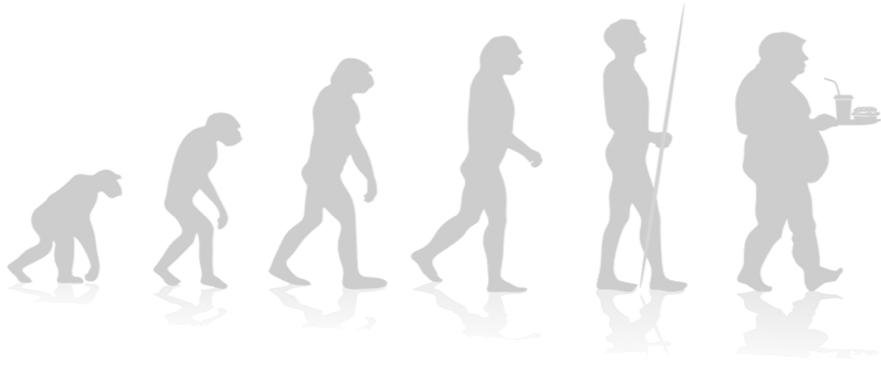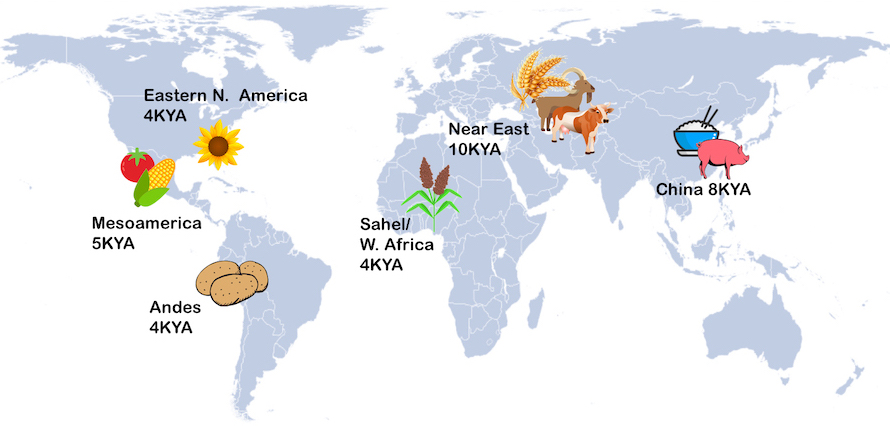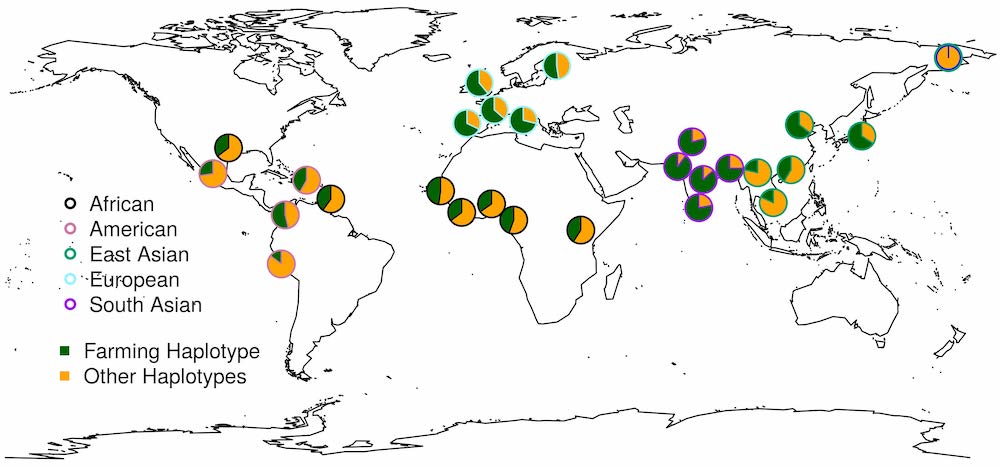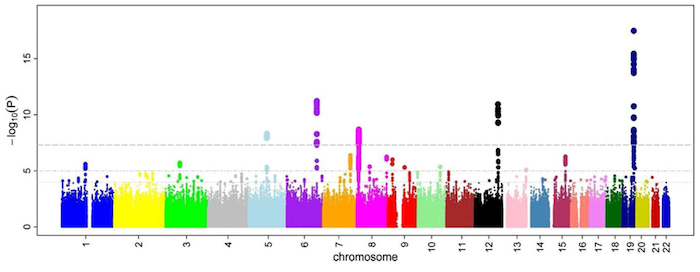Nutritional Genomics
Our research reveals genetic and evolutionary insights into human nutrition.

1. Population Genomics — Genetic adaptation to local diet
Modern humans originated in Africa about 200,000 years ago. Since then, our species has migrated to occupy almost every corner of this planet. Our ancestors encountered different environmental challenges (e.g., climate, pathogens, resources) in different places. Since about 10,000 years ago, human populations in different places domesticated different plants and animals, and developed regionally unique diets.
Genetic mutations that helped individuals survive better in a specific environment or diet became more and more common over time in the local populations. This natural process is known as natural selection, or genetic adaptation.
Genetic mutations that helped individuals survive better in a specific environment or diet became more and more common over time in the local populations. This natural process is known as natural selection, or genetic adaptation.


As an example, our previous research found that genetic mutations that enhance the biosynthesis of long-chain omega-3/6 fatty acids from plant-derived precursors were under natural selection in farming populations, likely due to their adaptive advantage to the historical plant-based diets. These mutations have the highest frequencies in South Asians, but are absent in the seafood-eating Inuits (Ye et al. Nat Ecol Evol. 2017; Kothapalli*, Ye* et al. Mol Biol Evol. 2016).
To identify these cases of genetic adaptation, we apply statistical analysis of DNA from both present-day and ancient human individuals (i.e., modern and ancient DNA).
To identify these cases of genetic adaptation, we apply statistical analysis of DNA from both present-day and ancient human individuals (i.e., modern and ancient DNA).
2. Comparative Genomics — What made humans unique?
Modern humans are unique not only in dietary practices but also in metabolism, nutritional requirements, and susceptibility to metabolic diseases. We are interested in identifying the genetic basis of these human unique characteristics.
We search for the underlying human-specific genetic changes by comparing the human genome with those of other mammals, especially primates. We also trace the molecular evolution of specific metabolic genes to understand how they gained or lost specific functions in the human lineage.
We search for the underlying human-specific genetic changes by comparing the human genome with those of other mammals, especially primates. We also trace the molecular evolution of specific metabolic genes to understand how they gained or lost specific functions in the human lineage.

3. Quantitative Genomics — The genetic basis of metabolic traits
We are interested in identifying disease-causing mutations through linkage analysis and genotype-phenotype association studies. We pay special attention to gene-diet interactions in the context of metabolic diseases.
Leveraging the large number of known trait/disease-associated genetic variants, we also investigate the polygenic evolution of complex metabolic traits, and statistically evaluate the causal relationship between specific biomarkers and metabolic diseases (e.g., Mendelian Randomization).
Leveraging the large number of known trait/disease-associated genetic variants, we also investigate the polygenic evolution of complex metabolic traits, and statistically evaluate the causal relationship between specific biomarkers and metabolic diseases (e.g., Mendelian Randomization).

4. Molecular Genetics — The molecular mechanism of genetic variants

For genomic regions identified in our evolutionary or disease-association studies, we apply molecular experiments in human cell lines to fine-map the causal variants and to elucidate their molecular mechanisms.
Typical experimental techniques include luciferase reporter essay, ChIP-qQCR, CRISPR editing, RT-PCR, Western Blot, and various types of sequencing.
Typical experimental techniques include luciferase reporter essay, ChIP-qQCR, CRISPR editing, RT-PCR, Western Blot, and various types of sequencing.
5. Bioinformatics — Analysis of sequencing-based omics data
Broadly, we are interested in developing and applying bioinformatics tools to analyze sequencing-based omics data, ranging from genomics (e.g., genome assembly, genotype calling), transcriptomics (e.g., differential expression, novel transcripts, single-cell RNAseq), microbiomics, to functional genomics (e.g., ChIP-seq, ATAC-seq).